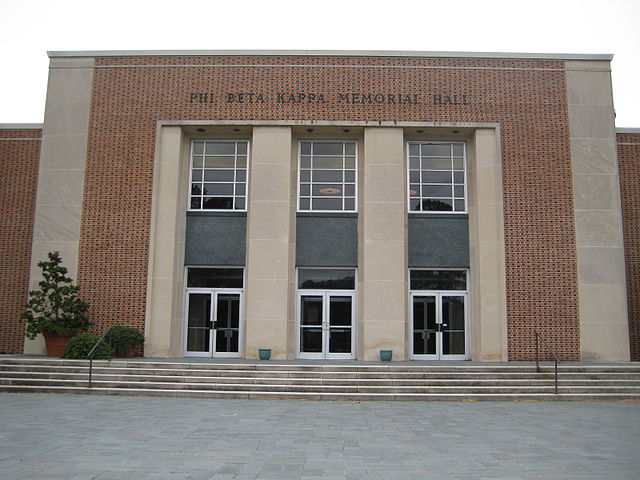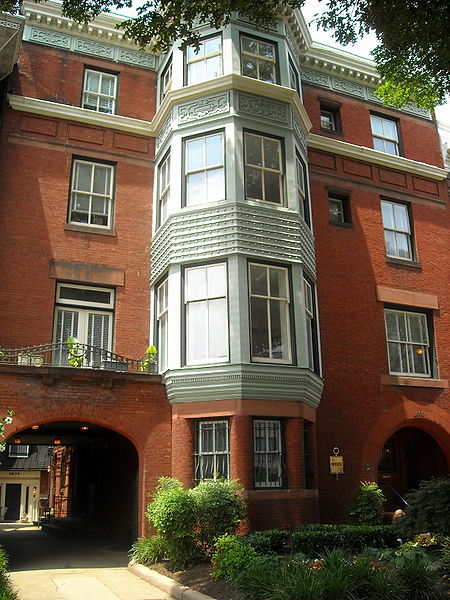The Phi Beta Kappa Society (ΦΒΚ) is the oldest academic honor society in the United States. It was founded at the College of William and Mary in Virginia in December 1776. Phi Beta Kappa aims to promote and advocate excellence in the liberal arts and sciences, and to induct outstanding students of arts and sciences at select American colleges and universities. Since its inception, its inducted members included later 17 United States presidents, 42 United States Supreme Court justices, and 136 Nobel laureates. Phi Beta Kappa (ΦΒΚ) stands for Φιλοσοφία Βίου Κυβερνήτης, which means "Wisdom [lit. love of knowledge] is the guide [lit. helmsman] of life".
Phi Beta Kappa Memorial Hall entrance at The College of William and Mary
Phi Beta Kappa national headquarters
Students hold the Key of Phi Beta Kappa at Duke University.
In the United States, an honor society is an organization that recognizes individuals who excel in various domains such as academics, leadership, and other personal achievements, not all of which are based on ranking systems. These societies acknowledge excellence among peers in diverse fields and circumstances. The Order of the Arrow, for example, is the National Honor Society of the Boy Scouts of America. While the term commonly refers to scholastic honor societies, which primarily acknowledge students who excel academically or as leaders among their peers, it also applies to other types of societies.
"Honor Societies", illustration from the 1909 Tyee (yearbook of the University of Washington)




